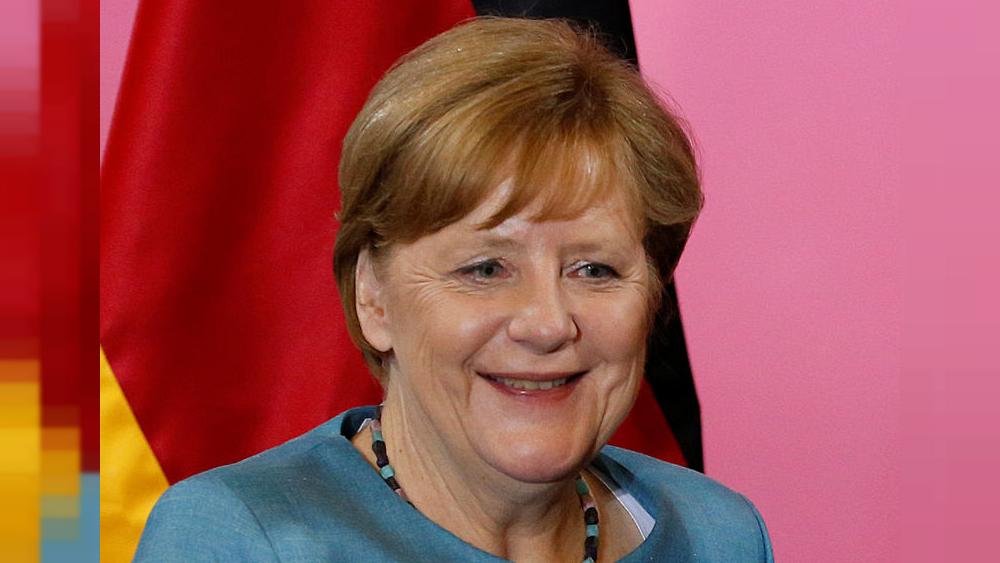Merkel Says Immigration Better Solved by Opportunity, Not Walls

EghtesadOnline: German Chancellor Angela Merkel took a shot at President Donald Trump’s proposed border wall, telling an audience in Mexico that a physical barrier won’t resolve any country’s immigration issues.
“We must fight against the causes that lead people to abandon their homes,” Merkel said at a Saturday business event at Mexico City’s Interactive Museum of Economics. “And constructing walls isn’t going to help.”
According to Bloomberg, Merkel compared Northern Africans trying to reach Europe with the influx of Central Americans that cross into Mexico from the south, with some continuing north to the U.S. She said that these migrants, many of them young, are often fleeing violence and seeking greater economic opportunity.
The statements and actions of the Trump administration have been a subtext of Merkel’s visit. She and Mexican President Enrique Pena Nieto affirmed their support for the Paris climate agreement after Trump’s decision to withdraw earlier this month. They also reiterated their commitment to free trade, even as Trump has complained about the trade deficit the U.S. has with both countries, especially in regard to auto manufacturing.
“In today’s world, marked by uncertainty, countries should work hand in hand,” Pena Nieto said, promising to protect foreign investments during the renegotiation of the North American Free Trade Agreement, which includes Canada.
Merkel, who faces re-election this year, has been on a tour to rally support among Group of 20 nations ahead of a July 7-8 summit in Hamburg. Her Latin America trip included a visit to Argentina before she headed to Mexico.
At a joint appearance Friday, Merkel and Pena Nieto reiterated their goal for updating the EU-Mexico free-trade agreement, which went into effect in 2000, by the end of this year. Mexico is looking to diversify its trade to make itself less dependent on the U.S. amid Trump’s criticism of Nafta.
Echoing the kind of trade negotiation that Pena Nieto’s government says it wants in negotiating with the U.S. to modernize the decades-old pact, Merkel said the revised Mexico-EU deal can be “a classical situation where everyone wins.”
Merkel said she sees Nafta talks, set to begin as soon as mid August, as a positive and a process that German companies are watching closely.
In response to reporters’ questions, Merkel said she’s concerned both about Venezuela and the situation with Qatar. A group of Gulf nations led by Saudi Arabia severed diplomatic ties as well as land, sea and air travel with Qatar on June 5, accusing the country of supporting Sunni extremist groups and Iranian-backed Shiite militants to destabilize the region. Qatar has denied it backs terrorists and accuses the Saudis of seeking to dominate their smaller neighbors.
Merkel also said she’s ready to defend the interests of EU members in Brexit negotiations and doesn’t see any reason for the process to be delayed by the results of the U.K.’s election.
“We will try to defend the interests of our 27 members states, and Great Britain will defend its own interests,” Merkel said Friday. “At this moment I don’t see any obstacle for us carrying out the negotiations as they have been planned,” she later added.
U.K. Prime Minister Theresa May’s stunning electoral setback with a hung parliament on Thursday left her Brexit strategy in shambles less than two weeks before the start of talks. Both the ruling Conservative Party and the opposition Labour Party fell short of an overall majority, setting leadership adrift.
The EU and U.K. were already racing against the clock with an agreement needed by the end of 2018 so that their parliaments can rubber-stamp it. The two sides are also at odds over multiple matters ranging from how the talks will be structured to whether the U.K. should pay an exit fee, and there’s the issue of finding common ground on a complicated trade accord.


